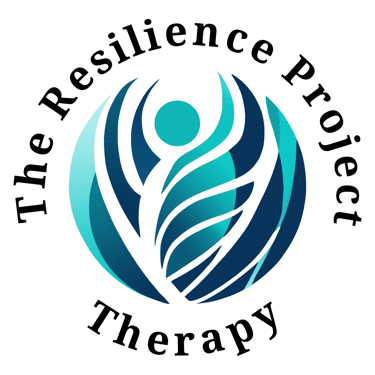How to Practice Self-Care for Your Mental Health
Understanding what self-care is and how to accomplish it within your daily life.
Christian Gray Hering, LCSW
11/7/20236 min read


As a therapist, I often emphasize the importance of self-care for my clients and their mental health. Self-care is the act of taking care of yourself and your needs in a way that supports your well-being and happiness. Self-care can help you cope with stress, prevent burnout, enhance your mood, and improve your quality of life.
However, self-care is not always easy or intuitive. Many people struggle with finding time, energy, or motivation to practice self-care. Some people may also feel guilty or selfish for prioritizing their own needs over others'. Some people may not even know what self-care means or what it looks like for them.
In this blog post, I will explain what self-care is, why it matters, and how you can practice it in different areas of your life.
What is Self-Care?
Self-care is not a one-size-fits-all concept. It can vary depending on your personality, preferences, goals, and circumstances. However, a general definition of self-care is:
Self-care is a multidimensional, multifaceted process of purposeful engagement in strategies that promote healthy functioning and enhance well-being¹.
Self-care can involve various aspects of your life, such as:
- Physical: Taking care of your body and its needs, such as eating well, exercising regularly, sleeping enough, staying hydrated, and avoiding substances that harm your health.
- Emotional: Taking care of your feelings and emotions, such as expressing them in healthy ways, seeking support when needed, practicing gratitude and positivity, and setting boundaries with others.
- Mental: Taking care of your mind and cognition, such as challenging negative thoughts, learning new skills or hobbies, seeking professional help if needed, and engaging in activities that stimulate your creativity and curiosity.
- Social: Taking care of your relationships and connections with others, such as spending quality time with family and friends, joining a community or group that shares your interests or values, communicating clearly and respectfully with others, and asking for or offering help when needed.
- Spiritual: Taking care of your sense of meaning and purpose in life, such as exploring your beliefs and values, practicing meditation or prayer, connecting with nature or a higher power, or engaging in activities that align with your passion or mission.
Why Does Self-Care Matter?
Self-care matters because it can have many benefits for your mental health and well-being. Some of the benefits of self-care are:
- It can reduce stress and anxiety. Self-care can help you manage the demands and pressures of life by providing you with coping skills and resources to deal with them. It can also help you relax and calm your nervous system by activating the parasympathetic response².
- It can prevent or treat depression. Self-care can help you boost your mood and self-esteem by engaging in activities that make you happy and fulfilled. It can also help you address the underlying causes of depression, such as negative thoughts, low motivation, isolation, or hopelessness³.
- It can enhance your resilience. Self-care can help you bounce back from challenges and difficulties by strengthening your physical, emotional, mental, social, and spiritual resources. It can also help you develop a positive outlook and attitude toward life⁴.
- It can improve your productivity and performance. Self-care can help you optimize your energy and focus by meeting your basic needs and avoiding burnout. It can also help you achieve your goals and potential by enhancing your skills, creativity, and confidence⁵.
- It can enrich your relationships. Self-care can help you improve your communication and connection with others by expressing your needs and feelings, listening to others, respecting boundaries, and showing empathy. It can also help you model healthy behaviors for others, especially children.
How Can You Practice Self-Care?
Practicing self-care may seem daunting or overwhelming at first, but it doesn't have to be complicated or time-consuming. You can start small and simple, and gradually build up your self-care routine.
Here are some tips to help you practice self-care in different areas of your life:
- Physical: Find a physical activity that you enjoy and do it regularly. Aim for at least 150 minutes of moderate-intensity exercise per week. Eat nutritious foods that nourish your body and mind. Avoid skipping meals or binge eating. Drink plenty of water throughout the day. Avoid excessive caffeine, alcohol, or tobacco use. Get enough sleep every night. Aim for at least seven hours of quality sleep. Follow good sleep hygiene practices, such as keeping a regular schedule, avoiding screens before bed, and creating a comfortable sleeping environment.
- Emotional: Identify and name your emotions without judging them. Accept them as valid and normal responses to your situation.Express them in healthy ways, such as talking to someone, writing them down, or crying if needed. Seek support from people who care about you and understand you. Reach out to a friend, family member, counselor, or support group when you feel overwhelmed or lonely. Practice gratitude every day by writing down three things that you are thankful for or that went well. This can help you focus on the positive aspects of your life. Practice positivity by challenging negative thoughts with more realistic or helpful ones. For example, instead of thinking "I'm a failure", think "I'm doing my best" or "I can learn from this experience".
- Mental: Challenge yourself to learn something new every day or every week. You can read a book, watch a documentary, take an online course, or learn a new skill or hobby. This can stimulate your brain and keep it sharp. Seek professional help if you are struggling with a mental health condition or emotional distress. There is nothing wrong or shameful about needing help to cope with your challenges. You can find a therapist who suits your needs and preferences through online platforms , directories, referrals, or hotlines . You can also explore other options for treatment, such as medication, support groups, or self-help programs .
- Social: Spend quality time with people who make you feel happy and supported. You can call them, text them, video chat with them, or meet them in person if possible. You can also plan fun activities with them, such as playing games, watching movies, or going out. Avoid people who are toxic, negative, or abusive toward you. They can drain your energy and harm your well-being. Set boundaries with them and limit contact if necessary. Join a community or group that shares your interests or values. You can find online or offline communities that cater to different topics, such as hobbies, sports, culture, or spirituality. You can also volunteer for a cause that matters to you. This can help you meet new people, make a difference, and feel good about yourself. Communicate clearly and respectfully with others. Express your needs and feelings in an assertive and polite way. Listen to others with empathy and curiosity. Give and receive feedback in a constructive way. Resolve conflicts in a peaceful way.
- Spiritual: Explore your beliefs and values. What gives meaning and purpose to your life? What are the principles that guide your actions? You can reflect on these questions by journaling, meditating, or praying. You can also read books, watch videos, or listen to podcasts that inspire you spiritually. Connect with nature or a higher power. You can spend time outdoors, admiring the beauty and wonder of nature. You can also practice meditation, prayer, or rituals that connect you with something greater than yourself. You can also visit places of worship, such as churches, temples, or mosques, if they resonate with you. Engage in activities that align with your passion or mission. What are the things that make you feel alive?What are the things that make you want to get up in the morning? You can pursue activities that match your passion, such as art, music, writing, or sports. You can also pursue activities that match your mission, such as helping others, advocating for change, or creating something valuable.
Conclusion
Self-care is not selfish or indulgent. It is essential for your mental health and well-being. By taking care of yourself in different areas of your life, you can improve your mood, reduce stress, enhance resilience, and live happier and healthier.
As a therapist, I encourage you to practice self-care regularly and consistently. You may not see immediate results, but over time, you will notice positive changes in yourself and in your life. I hope this blog post has helped you understand what self-care is and how to practice it.
I wish you all the best on your journey of healing and growth.
Source:
(1) NIMH » Caring for Your Mental Health. https://www.nimh.nih.gov/health/topics/caring-for-your-mental-health
(2) 5 Self-Care Practices for Every Area of Your Life - Verywell Mind. https://www.verywellmind.com/self-care-strategies-overall-stress-reduction-3144729
(3) Self-Care Practices | Mental Health at Cornell. https://mentalhealth.cornell.edu/self-care/self-care-practices
(4) What is self care? Examples and more - Medical News Today. https://www.medicalnewstoday.com/articles/self-care-examples
(5) Practical Types Of Self-Care – Forbes Health. https://www.forbes.com/health/mind/mental-self-care/
The Resilience Project Therapy
Mailing
P.O. Box 832182
Richardson, TX 75083
Contacts








